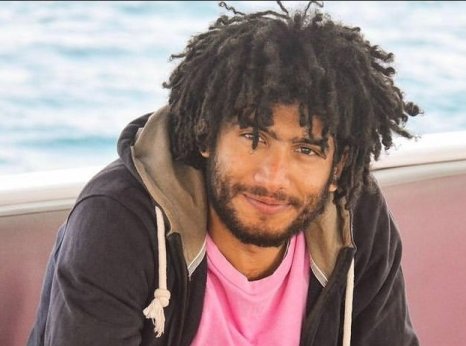Egypt: Unjustly Jailed Father Appeals Prison Term

Security forces arrested Badr Mohamed on 16 August 2013 in connection to the Ramsis Square protests, when he was 17 years old. Amnesty International documented the excessive force used by security forces against protesters and bystanders during these protests, resulting in the death of 97 protesters. According to information gathered by Amnesty International, Badr Mohamed was in the vicinity of Ramsis Square when violence erupted, and he ran to the nearby Al-Fath mosque for safety. The security forces then raided the mosque, where tens of protesters and bystanders were trapped, including many who were injured, and arrested Badr Mohamed and many others. According to the casefile, reviewed by Amnesty International, Badr Mohamed was named as a suspect in case 8615/2013 and interrogated before Al-Azbakeya prosecution on 19 August 2013 without a lawyer present. Badr Mohamed was arbitrarily detained with adults in Wadi al-Natron prison and transferred to a juvenile detention facility three months later, where he remained until his release on bail in November 2013. Under international law and standards, the arrest, detention or imprisonment of children should only be used as a measure of last resort; must be subject to regular review and be for the shortest appropriate duration; and alternatives to detention should be used whenever possible. According to his relatives, after his release, he has been suffering from post-traumatic stress disorder and has been living in hiding fearing re-arrest. On 18 August 2017, Badr Mohamed was sentenced to five years in prison in his absence on charges of murder of police officers, attempted murder, “destroying public property”, “protesting without authorization”, “attacking the security forces” and “hindering the work of national institutions”, among other charges. He was tried in a grossly unfair mass trial that included 494 defendants, 43 of whom were sentenced to life imprisonment, while 399 were sentenced to between five and 15 years in prison, including eight children. The verdict, examined by Amnesty International, heavily relied on investigations and eyewitness accounts by security forces and other government officials.
Security forces arrested Badr Mohamed in front of his wife, an Austrian national, during a Ramadan breaking of the fast (Iftar) on 11 May 2020. He was referred to retrial before a terrorism circuit of a Cairo Criminal Court in July 2020. According to lawyers, new defendants were arrested and/or added to the case every month, which delayed court proceedings considerably. In mid-2022, the presiding judge dismissed the lawyers’ requests to call witnesses or re-examine evidence. The retrial initially took place in a courtroom inside Tora Prison Complex and then in a courtroom inside the Badr Prison Complex. On 12 January 2023, Badr Mohamed was convicted of “participating in an illegal gathering”, "displaying force associated with the crime of premediated murder”, “attempted murder”, “destruction of public property”, “attempted use of explosives and possession of firearms and knives”, among other charges and sentence to five years in prison. Similarly to the original verdict issued in August 2017, the presiding judge in the retrial relied on secret reports by security forces, to which defendants and their lawyers don’t have access, and witness testimonies from police and other security or government officials. Lawyers raised concerns that no material evidence was presented in relation to Badr Mohamed’s alleged participation in protests or violent acts. Amnesty International learned from Badr Mohamed’s lawyers that the court dismissed statements by defence witnesses that he did not take part in the protests.
Amnesty International learned from human rights organizations and other informed sources that at least dozens of prisoners in Badr 1 prison were on hunger strike during the summer in Egypt, to protest their cruel and inhuman detention conditions. The hunger strike appears to have been triggered by a sharp rise in temperatures, reaching over 40˚C, amid the prison authorities’ refusal to allow prisoners to have fans and daily power cuts introduced by the government nationwide in response to the energy crisis. Detainees were also protesting the lack of access to adequate healthcare and what they and Egyptian human rights activists describe as humiliating body searches imposed by prison officials when prisoners leave their cells, including to attend pretrial detention renewal sessions or to go to the prison clinic. Other commonly reported complaints include the ill-treatment of families during prison visits, including forcing them to wait in the sun for hours; the reduction in the time allotted to prisoners for exercising outside the cell; and restrictions on family visits. Some of those on hunger strike are also protesting their lengthy pretrial detention, in some cases exceeding the maximum limit of two years permissible under Egyptian law. According to human rights groups, in response to the hunger strike, Badr 1 prison officials introduced further punitive measures including transferring some 50 prisoners to distant prisons, located in al-Minya governorate (about 280 km south of Cairo) and Al-Wadi Al-Jadid governorate (about 620 km southwest of Cairo) prisons. According to activists, prison authorities imposed punitive measures on the remaining prisoners in Badr 1 prison involved in or supportive of the hunger strike, including deliberately cutting off their access to electricity and water, in violation of the absolute prohibition of torture and other ill-treatment.